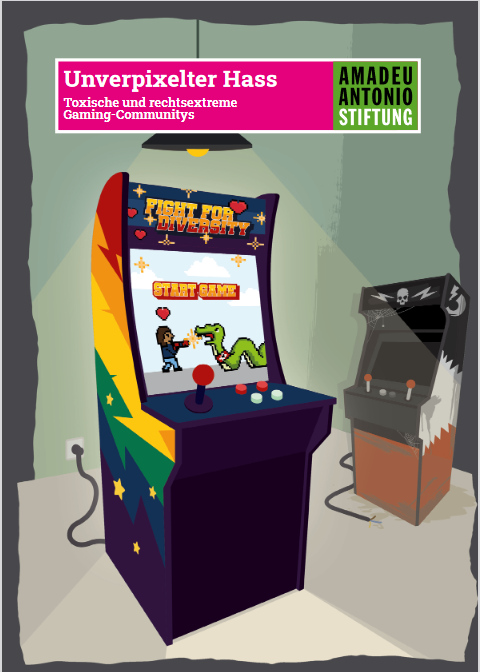In the 2001 released espionage adventure Metal Gear Solid 2: Sons of Liberty, the world emerges from the unraveled by gullible young protagonist Raiden. At the end of the game, the secret agent embodied by the players is faced with the fact that the artificial intelligence anticipates and controls each of his steps. It is a test run that aims to prove that human behavior can be controlled by certain scenarios and conditions. According to the sloppy logic of artificial intelligence, digitization has led to so much information and data wasted that people should be relieved of the task of choosing facts and lies so that progress in society as a whole does not stop. At that moment, the game questions a lot of events that the players themselves had previously experienced. Metal Gear Solid 2 presents players with the same challenge as protagonist Raiden in the story: distinguish between fantasy and reality in a world that appears to be rather than facts and lies, various “contradictory truths” that exist side by side.
The Sons of Liberty story, 20 years after the game’s release, is often cited as a prophetic vision of the modern post-truth era. Even if we rely on the help of algorithms today to find our way through the information forest, we still want to retain mastery over the interpretation of reality and truth. Likewise, as members of a free and open society, we must ensure that young people and future generations are given the appropriate skills to do justice to this task. As a medium that is especially popular among young people, digital games can make an important contribution to this.
Games train dexterity, interaction skills, and spatial reasoning. However, they can also inspire us to tackle the social challenges of the digital age. Moreover, a certain degree of “game literacy” should be part of the education and education of mass media for everyone today. With the help of the interaction of the worlds of digital games, we can not only experience at an early age what it means to influence our environment (keyword: self-efficacy), but also what it means to be exposed to the influence (and possibly manipulation) of our own environment. The learning effects of digital games do not unfold overnight and do not appear in a vacuum. As with all media, the way games affect us depends largely on how we learn to interact with them. So having a pedagogical framework with teaching and learning methods that translate experiences from game to learning for real is critical.
Media and information literacy
Even adults today find it difficult to categorize digital information. In a study by the New Responsibility Foundation, only 43% of those questioned admitted that a post made on social media was misinformation. According to the study, the younger generations are more competent than the older generations, but there are clear differences depending on their educational background:
The higher the level of formal education, the higher the proficiency scores. In addition, digital information literacy is particularly low among supporters of anti-democratic parties, which, according to the study, goes hand in hand with a low level of basic trust in democracy and the media. Thus, handling and categorizing digital information and media is not only a key competence of the modern world of work, but also a basic requirement of responsible citizens in a digital democratic society.
Ideally, teaching digital media skills should become a common thread running through the curriculum for all subjects. This only works if digital media is actively integrated into the lesson, and games can also play an important role here. Digital games not only combine all previous forms of media and technologies with creative, narrative, and representational elements; Its development has also been closely linked to the history of the computer and the Internet since the early 1960s.
Computer games have always been a fun approach to the digital world and thus can also be an approach to digital learning and dealing with digital information. Serious games such as “Bad News” (2018) or “Hidden Codes” (2021), published by the Anne Frank Education Foundation, illustrate how digital games can use interactive and narrative elements to motivate people to engage constructively with topics such as fake news or online extremism.
However, when in doubt, there is no need for “educational games” dedicated to learning from and through games. Similar to literature or films, traditional “games” also offer many points of contact, which can be used to inspire especially young people on topics they may not be familiar with at first. A critical examination of exciting playable spy movies like “Metal Gear Solid 2” can be valuable for training your media skills and digital maturity. Precisely because we are so fascinated by coherent plot plots with causal chains as simple as fiction, we should be especially skeptical where such narratives are presented to us as supposedly true. Because reality does not follow the narrative conventions nor the specific rules of the game master.
Media education and digital infrastructure
Of course, schoolchildren cannot become digitally mature citizens if there is a shortage of educational specialists to prepare them for this. In the OECD’s own PISA assessment for 2020, Germany ranked 76 out of 78 in digital teacher training. The results are based on surveys of corresponding training opportunities in schools. Of course, teachers in Germany cannot be blamed for this fact, quite the opposite: in many places there are already individually committed teachers who bring digital media, including games, into the classroom with great enthusiasm. What is lacking are systematic digital methods for designing lessons and corresponding additional training offers for teachers.
For this reason, Stiftung Digitale Spielekultur (Foundation for Digital Games Culture) wants to use the “Games Make School” initiative to examine how digital games are used in the classroom. In Berlin, as part of the initiative, a pilot project is being prepared, funded by the Senate Department for Education, Youth and Family, which, in addition to using games in school lessons, also wants to research what qualifications teachers need and how they can be trained.
In addition to the basic requirements for educators, digital infrastructure in schools is also essential for successfully teaching media skills using games. Since 2019, the Federal Schools Digital Agreement has provided better equipment — at least in theory. Due to complicated application procedures and a lack of IT professionals in schools, at the end of 2020, there were just under 500 million of those approved.
6 billion euros were paid in support. Schools that are digitally equipped and well up-to-date often owe this too to individual, digitally specialized teachers.
Activate the capabilities of digital games
Games are not magical tools that can solve our problems without active intervention. But they are more than just entertainment machines. Like other media, it is primarily productive. But it is a product that can have artistic or educational value. Whether we can learn with them and from them depends above all on the framework conditions we create for them and other digital media in the school and education system. It is important that we take seriously their role as a source of discourse and as a screen for millions of people in Germany.
This text is an excerpt from the brochure:
Amadeo Antonio Foundation / Good Gaming – A Well-Performing Democracy:
“An Undiminished Hate. Toxic and Far-Right Gaming Communities.”
Berlin 2022
90 pages
More on Belltower.

“Unapologetic analyst. Infuriatingly humble coffee evangelist. Gamer. Unable to type with boxing gloves on. Student. Entrepreneur.”








More Stories
“Work Hard – Play Hard” – Craft meets Gaming starting May 15, 2024 on ARD Twitch
An unsuspecting user buys a gaming PC for 140 euros
Wings for Life World Run – Engages the gaming community